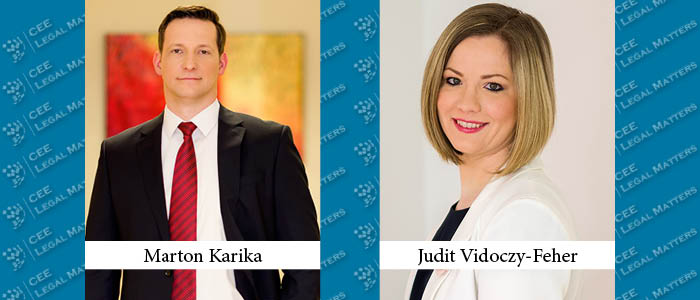Energy crisis, inflation, and the forint exchange rate slide: what impact have these circumstances produced on the office lease market? This article aims to provide an overview of the challenges the office lease market faces in Hungary in such a turbulent period.
Owners and landlords are now, for the first time, facing the scale and complexity of the problem of soaring energy costs. Although the COVID lockdown has already disrupted market conditions in 2020 and 2021, as a result of the spread of remote work, the third and fourth quarters of 2022 brought questions of energy efficiency into the spotlight – for the office lease sector in Hungary as well. The trend towards remote work will foreseeably not stop but will continue to be vital for energy-saving purposes. The current state of the office market will certainly encourage both landlords and tenants towards closer cooperation – to probably enable both parties to benefit from their enhanced cooperation – on a scale reflecting their negotiating power.
Within the frame of such cooperation initiatives, in many places, a so-called action plan was set up, which meant thinking together with tenants, assessing office use habits, and the overall or individual savings that could be achieved by changing those habits have preceded investments in energy efficiency. For instance, in several buildings, following the introduction of the unified home office, the building energy systems have been modified accordingly, e.g., pre-treated fresh air temperatures have been lowered on designated days, or the lighting intensity of the buildings has been reduced, either partially or completely, in pre-agreed areas of the building. Investments to help reduce operational costs are becoming more common: individual utility meters have been installed for tenants to help them make their own savings through rethinking and controlling office habits, and technical solutions for the segmentation of buildings and presence detection (smart solutions) have been elaborated. In some buildings, completely new alternative heating/cooling systems are being installed.
In office market terms, it is still a very short time since the energy prices started to go out of control, but it is clear that buildings that have already paid particular attention to integrating environmentally conscious green energy systems will have a strong advantage. In addition to ESG considerations, the need to keep utility costs low will foreseeably increase demand for green buildings. This might also mean that demand for category B office buildings will fall, while (existing and newly built) category A office buildings will continue to be in demand and will be able to keep rents at high levels.
The extremely high Hungarian inflation rate (14,5% yearly compared to 2021 CPI) currently does not seem to further upset tenants, as the vast majority of office leases are linked to euro-based inflation (MUICP), a figure that has fluctuated between 0 and 2% for many years. Although the figure of nearly 10% in 2022 is indeed an increase by an order of magnitude, excessive tenant dissatisfaction has not yet been experienced by the landlords. This is compounded by the fact that energy costs have increased at a much higher rate, and all actors are focused on addressing and solving that issue.
The market trends and the need for cooperation between landlords and tenants will certainly affect existing lease agreements and also new ones, and legal solutions will need to be adapted to provide for the varying needs of the parties. The role of lawyers with strong negotiation skills and expertise spiced with solid knowledge of the market and its tendencies will continue to be of the essence for both landlords and tenants.
By Marton Karika, Managing Partner, and Judit Vidoczy-Feher, Attorney at Law, Act Legal Ban & Karika
This article was originally published in Issue 10.3 of the CEE Legal Matters Magazine. If you would like to receive a hard copy of the magazine, you can subscribe here.
